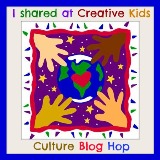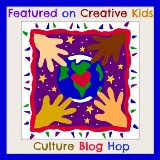Ramadan is starting tomorrow, Saturday 27th, 2017. Here is a guest post from Sarah Ager - a Christian UK girl who converted to Islam and is now happily married to a Muslim man and lives in Italy - who is the curator of Interfaith Ramadan (this text was written in 2016, but I kinda lost her text until this week when I found it by accident on my computer... God moves in mysterious ways):
As people of faith, we sometimes act under the assumption that ours is the only way of perceiving God. We hold this view even though Muslims make up only a seventh of the world's population. We sometimes forget that we live in a multi-cultural world alongside people of many diverse beliefs and faith backgrounds, who have their own unique ways of approaching and perceiving the Divine.
There are many lenses through which people perceive the world –
the Bible, the Torah, the Qur'an, the Bhagavad Gita – to name just a few. There
are a wealth of religious and non-religious texts which guide people in their
daily lives – just as the Qur'an acts as a moral compass for Muslims.
In our increasingly globalised world, constant contact with other backgrounds and faiths make it imperative to learn more about the diversity of our neighbors because we are all an intrinsic part of the communities in which we live. Developing mutual respect, rather than merely tolerating one another, is not something that can be learned overnight. Through reaching out and speaking openly we can begin to nurture genuine appreciation for the ways others express their faith.
In our increasingly globalised world, constant contact with other backgrounds and faiths make it imperative to learn more about the diversity of our neighbors because we are all an intrinsic part of the communities in which we live. Developing mutual respect, rather than merely tolerating one another, is not something that can be learned overnight. Through reaching out and speaking openly we can begin to nurture genuine appreciation for the ways others express their faith.
Without education, we can all too easily develop an irrational
fear and mistrust of those we deem to be 'other'. This is especially true
between people of different faiths, and when political groups, individuals, and
certain factions of the Media so often seek to divide by exploiting and
exaggerating religious difference.
Fear and mistrust of people based on assumptions of race or
faith are at the core of countless acts of discrimination. To overcome this
problem, we need open and constructive communication – the foundation of all
positive relationships.
Through interfaith, an all-encompassing and inclusive way of interacting with one another, we endeavour to transcend human-made boundaries and make personal connections with people from all faith and non-faith backgrounds. Interfaith invites us to come as individuals with personal stories rather than being burdened with collective responsibility and representation of an entire faith community. Through sharing we gain greater understanding and become more inclusive in our interactions with the people around us.
As a Muslim from a predominantly Christian family, my inspiration for promoting interfaith is not only social, as a means of strenghtening ties with family and friends, but also deeply spiritual. Interfaith is not a foreign concept to Islam, it is in fact an intrinsic part of our faith. Within the pages of the Qur’an, we are called to protect “cloisters and churches and synagogues and mosques, wherein the name of God is oft commemorated” (Qur'an, 22:40). In his lifetime, Muhammad ﷺ encouraged and was actively involved in interfaith.
On one such occasion, Muhammad ﷺ met with a delegation of Christian Chiefs from Najran and together they signed a peace treaty which included the terms;
“No
compulsion is to be on them. Neither are their judges to be removed from their
jobs nor their monks from their monasteries. No one is to destroy a house of
their religion, to damage it, or to carry anything from it to the Muslims'
houses. Should anyone take any of these, he would spoil God's covenant and
disobey His Prophet.”
Alongside the promise that the Christians of Najran could worship freely, the treaty also included the understanding that “their Churches are to be respected. They are neither to be prevented from repairing them nor the sacredness of their covenants,” meaning they would be able to uphold their faith tradition alongside Muslims in the Arabian Peninsula.
It is clear that building strong communities by taking care of all those within it is an integral part of Islam and should be considered the duty of Muslims who strive to please Allah. The fighting we see between faith groups, and even within them, hurts the whole community and goes against the golden rules of each faith, from the Christian concept of loving our neighbour and the Islamic principle that doing harm to another human being is as if you have hurt the whole of mankind, symbolising our intrinsic interconnectness.
Present day examples of interfaith in action include the iconic images of Muslims protecting Coptic Christians in Egypt during the 2011 Arab Spring and more recently, Christians providing refuge for persecuted Muslims in the Central African Republic despite the serious risk to their own lives. On a smaller but no less significant scale, there are regular and heartening stories of religious groups coming together to help other groups in times of need, from churches providing safe spaces for Muslims to pray during far-right protests in various European cities, to Muslims looking after synagogues in Kolkata.
On a more local level, Interfaith helps us to develop new and comprehensive ways of speaking in our daily lives that respects differences, and brings people together based on shared values. This inclusivity feeds into all our relationships, with family, friends, co-workers etc, and is particularly relevant for converts who have non-muslim family members or those in interfaith families. The tools of interfaith can also aid us in much needed intrafaith dialogue, creating stronger ties between different groups under the umbrella of Islam.
Although Interfaith dialogue invites us to share our personal
experience of faith, we should remember that interfaith is not about throwing a
net to catch potential converts. Critics of Muslim-based interfaith initiatives
have argued that it's cleverly disguised dawah of the "creeping
sharia" variety. Similarily, many Christian websites have written articles
which recommend interfaith dialogue as a way of proselityising and essentially
going undercover to gather information about how best to convert members of
certain religious or secular groups. It is important to recognise the fine line
between education and evangelism. Trust is crucial for open dialogue but it
cannot develop if we suspect the other party is trying to boost their own
numbers. Instead, interfaith offers us a safe space where we are able to come
together, explore our similarities, change stereotypes, and build relationships
based on constructive communication.
For people of faith, learning about other religions allows us to gain insight into how others worship and, ideally, helps us to deepen our connection with God while honouring our own faith tradition. Interfaith dialogue and hands on engagement provides us an opportunity to gain insight into our own tradition as we explain our beliefs to others and in turn learn how how faith is viewed through the lens of other faith traditions. In his book 'The Good of Religious Pluralism, Austrian-American sociologist Peter Berger states that 'pluralism influences individual believers and religious communities to distinguish between the core of their faith and less central elements'. As a result of pluralism, Mormon writer Daniel Peterson believes that we not only gain intellectual benefits from engaging with other but we also 'become better by interacting with people different from ourselves.' People of diverse faiths share a common journey as learners and as seekers towards a better self and a better faith community in which we are a part.
Although we may be strolling down different paths, we are all on
journeys seeking to find meaning in our lives, be our best selves, and for
those who have faith, grow closer to our Creator. Interfaith dialogue reminds
us of how much richer our lives can be when we strive towards these goals hand
in hand.





